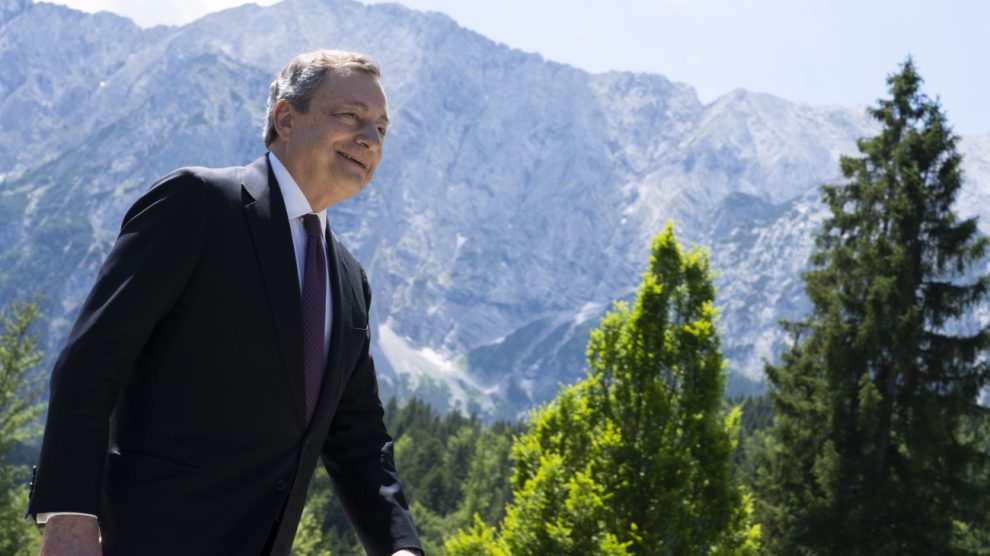Italian Prime Minister Mario Draghi’s proposal for a price cap on Russian oil and gas to curb inflation and apply additional pressure on the Kremlin is gaining terrain and more G7 leaders, now gathered in Germany, have shown support. The US called it “a new kind of concept to deal with a particularly novel challenge.”
A victory for Mr Draghi? Negotiations for price caps are already a victory for the Italian Prime Minister, who brought up this Italian flagship proposal in May during his meeting with US President Joe Biden at the White House, as well as at the last two European Council meetings.
- “The Commission received a mandate to study the feasibility of a gas price cap,” PM Draghi told reporters in Brussels after last week’s EU summit.
- “Capping the prices of fossil fuels imported from Russia has a geopolitical goal as well as an economic and social one,” PM Draghi said yesterday at a presser in Germany.
- He also added: “We need to reduce our financial flow from Russia and we need to get rid of the main cause of inflation.”
US support. Mr Biden’s national security advisor, Jake Sullivan, called the price cap plan “a new kind of concept to deal with a particularly novel challenge, which is how to effectively deal with a country that’s selling millions of barrels of oil a day.”
- Mr Sullivan added that the plan would mark a “pretty dramatic step forward” and would amount to “one of the more significant outcomes of the G7 summit.”
- Biden’s national security advisor pointed out that Ukrainian President Volodymyr Zelensky, who addressed the G7 earlier today, “didn’t specifically raise the price cap.” What he did raise—Mr Sullivan said—was denying Putin revenues from oil sales.”
Who else is in support? Roderich Kiesewetter, President of the Intelligence Committee in the German Bundestag, told Decode39 Mr Draghi’s plan is a “brilliant idea” but it will have a cost that needs to be taken into consideration as we approach the winter: “Russia will drastically reduce its export of fossil fuels.”
- German Chancellor Olaf Scholz has said that an oil price cap would work only if all purchasers are onboard.
- French President Emmanuel Macron also seems to be onboard and has argued that any price cap should include natural gas, not only oil.
Will it work? While the price cap is not finalized yet, including how it could be enforced and whether Russia’s major foreign buyers such as India would go along, the trend is looking good towards leaders coming together around the idea.
- Mr Sullivan explained today that implementing price caps “requires technical work that has to be done by ministers—energy ministers and finance ministers—in order to develop an actual executable cap that then goes into effect.
- He added: “So the leaders can’t design every element of the program here at Elmau. What they can do is give direction to ministers to design such a program and then come back to leaders to bless it and have it be implemented.”





